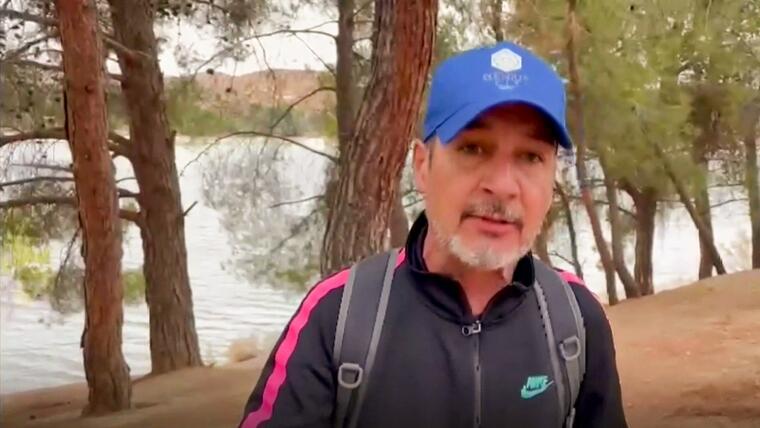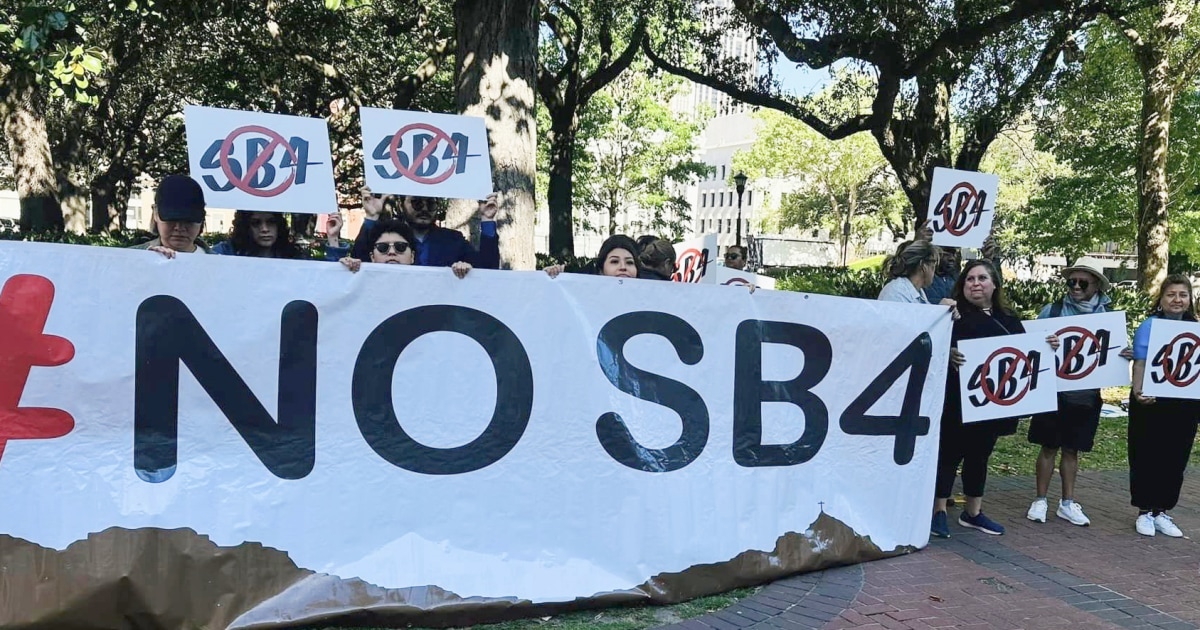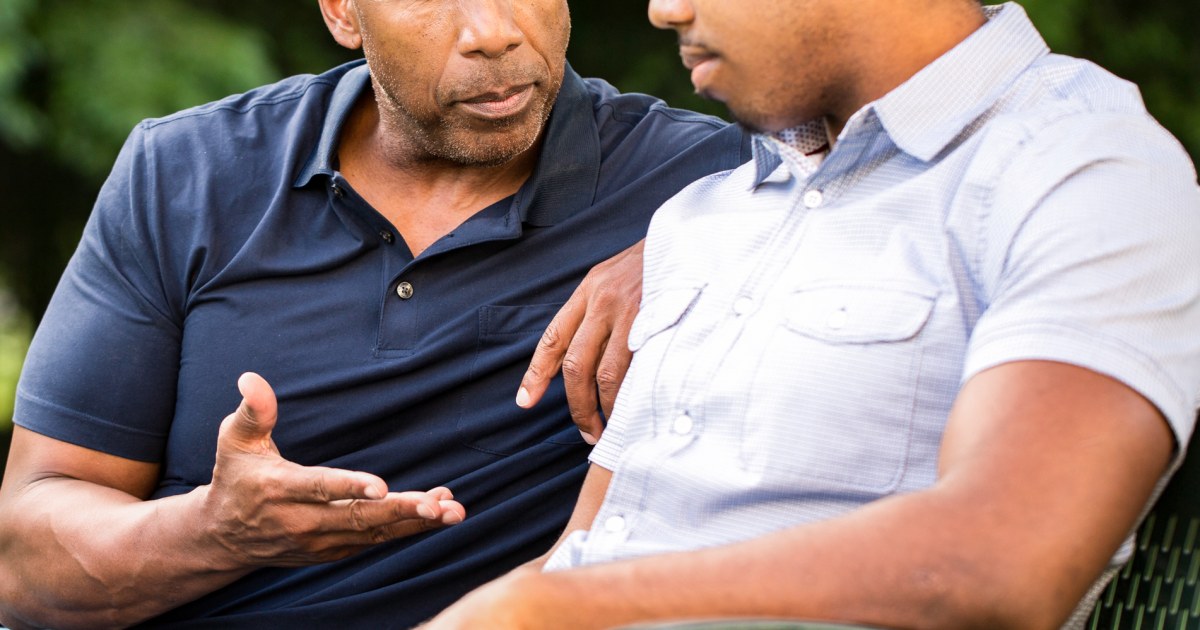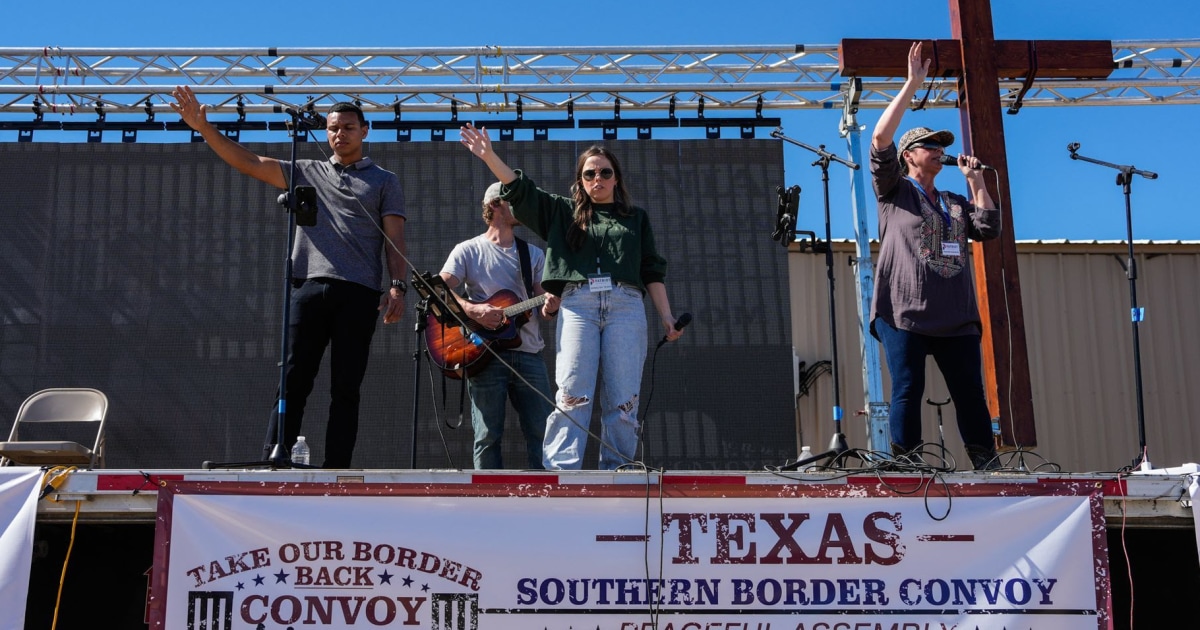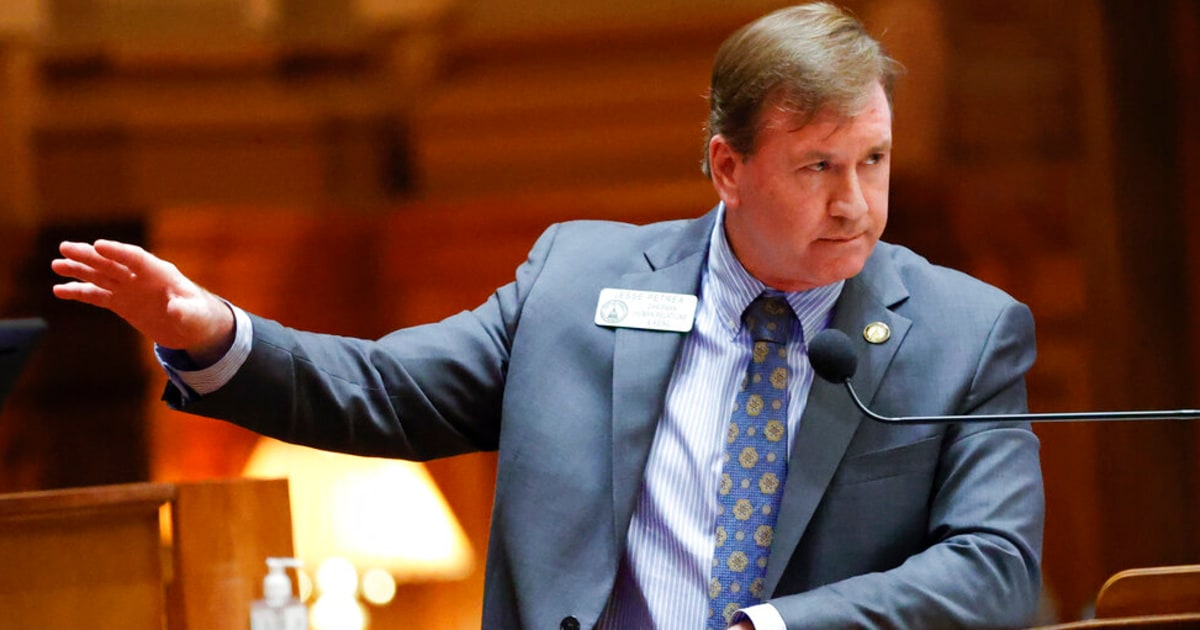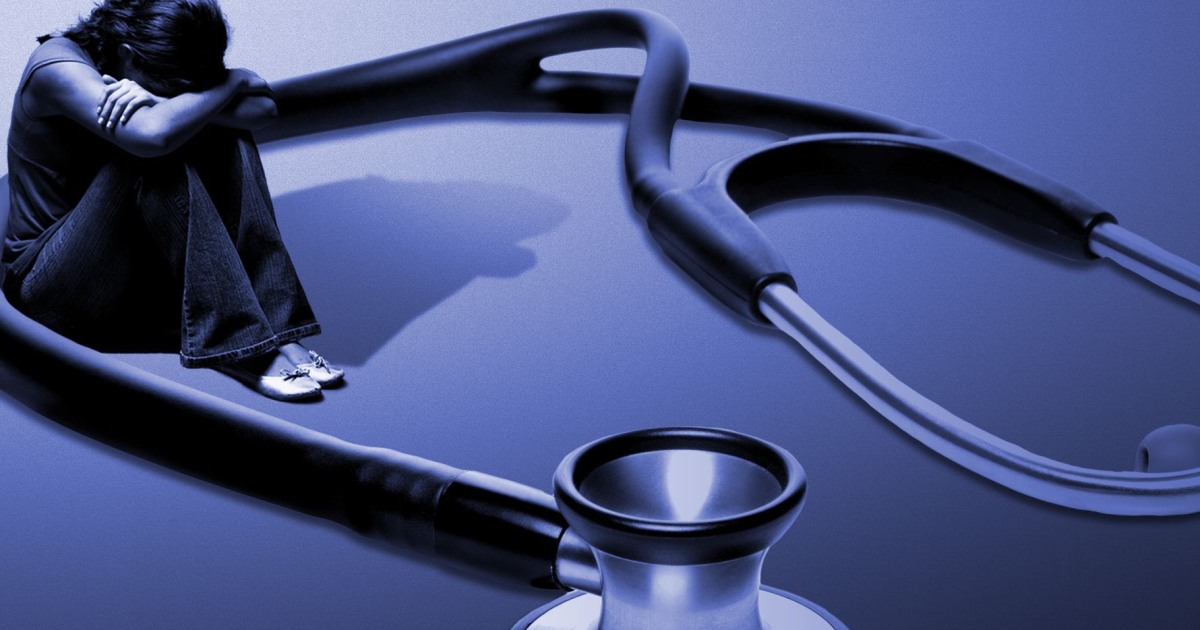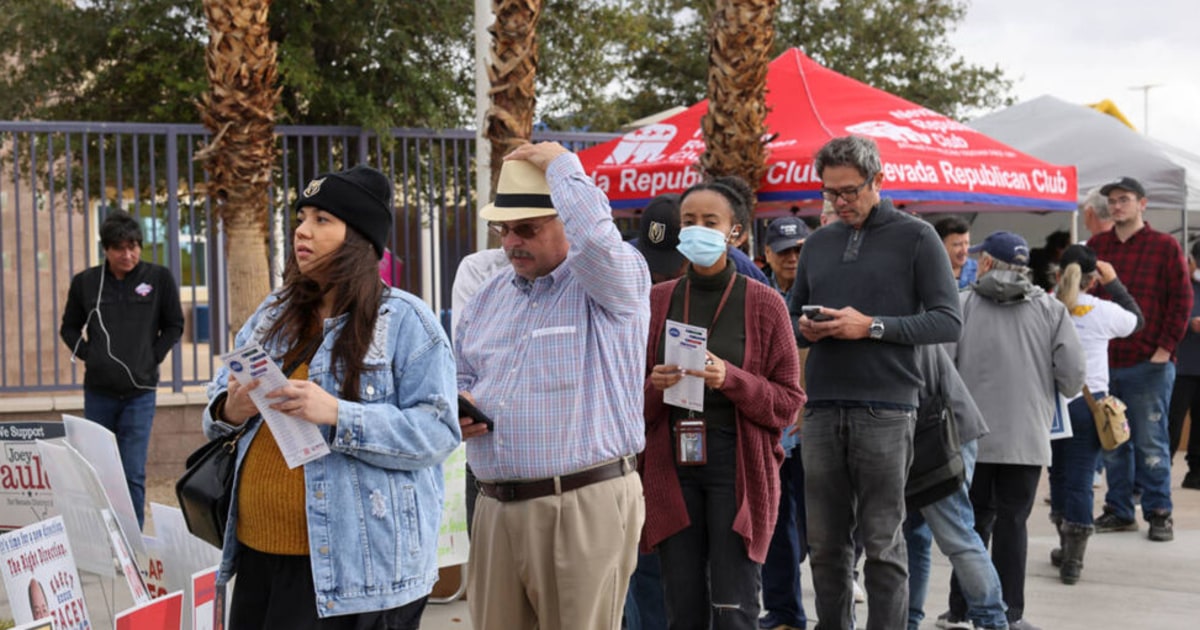Teresa Siraitare says that everything happened too fast, in a matter of days.
Her 9-year-old son Julio César had suffered from pain in his legs and waist.
"Since he plays baseball, we thought that was it," he says.
But on Friday, October 8, he could no longer walk: he screamed in pain.
He was rushed to a local hospital in Nogales, Arizona, and from there the next day to a more complex one in Tucson.
On Sunday, October 10, he underwent emergency surgery.
He had huge tumors pressing down on his spine.
“Julio has been a very brave child, very strong, even though he had never been to a hospital,” says the mother, a Mexican immigrant living in Arizona, to Noticias Telemundo.
But you know this is just the beginning.
The little boy needs chemotherapy and extensive treatment, and
the family does not have health insurance and cannot afford the expenses.
Julio César Rodríguez Siraitare (right) with his younger brother and his mother.
Courtesy Teresa Siraitare
The lack of health coverage hits Latino families like Julio César Rodríguez Siraitare's across the United States.
More than 1.8 million children and 3.8 million Latino parents
do not have health insurance, according to an estimate by the Georgetown University Center for Children and Families based on Census Bureau data.
This number increased under the presidency of Donald Trump, with Hispanics having the highest rates of lack of health coverage in the country among different races or ethnicities.
10% of adult white people said in the 2020 National Health Survey they were uninsured.
Among Latinos, 29% did so, representing more than 11 million people.
Latino families are left helpless in the face of a serious case like Julio's, who suffers from high-risk neuroblastoma, a rare disease that generates cancer cells in the adrenal glands, neck, chest or spinal cord.
"
It is a process of living with stress, with fear,
" says the mother.
"It is my son's life [that is at stake]."
Economic concern is added to what he lives emotionally.
The 44-year-old woman had to leave her job as a stylist in Nogales and her other 6-year-old son there, in the care of her grandmothers, to move to the capital of Arizona.
Julio needs six cycles of chemotherapy, high-tech medical exams, and constant monitoring at Banner University Medical Center in Tucson.
The lack of medical services has another consequence: it
is undermining quality and life expectancy
due to not having early detection controls and treatments for conditions such as diabetes and hypertension.
The situation is more extreme in the southeastern states of the country, which have not adopted the expansion of low-budget coverage such as Medicaid.
In Tennessee, North and South Carolina, Oklahoma, Mississippi, Alabama, Georgia, Texas and Louisiana between 40 and 50% of Latino parents are uninsured.
There is a complex web of causes, experts say, among which are the lack of affordable options in the health system, precarious work without benefits and the so-called
Trump chilling effect
.
"There is fear of going to the doctor"
By the time Donald Trump came to power, immigrants already suffered from high rates of under-coverage.
In 2017, 30% of foreigners who had been in the country between 10 and 20 years, and were not citizens, said they did not have health insurance in Census surveys.
The Republican's policies, and his anti-immigrant rhetoric, further impaired access to healthcare, particularly for mixed Latino families with undocumented members.
“There is fear of going to a hospital, to a clinic, to the doctor, because
the fear of deportation
is always present
,” says Victoria Ruiz-Marin, who works in community programs with the Planned Parenthood organization in the Las Americas region. Rocky Mountains, from Idaho to New Mexico.
That fear has a real basis.
Immigration and Customs Enforcement Services (ICE)
cannot raid or arrest undocumented persons in hospitals
unless they have a warrant signed by an immigration judge.
"But that doesn't mean it didn't happen," Ruiz-Marin clarifies.
A Guatemalan immigrant was about to be deported from a hospital bed in Philadelphia
June 25, 202001: 57
Many also fear leaving their community to seek help for fear of running into an ICE checkpoint, as in the Rio Valley in Texas, the area with the highest percentage of uninsured in the country.
Those who cannot apply for low-cost coverage or have protection against deportation - such as DACA, TPS, a humanitarian visa or political asylum - "
are completely helpless,
" says the organizer.
Joe Biden's administration has brought some relief to Latino families with measures like not allowing ICE to not be able to arrest and deport immigrants just for being undocumented.
Be a public charge
However, there is a frightening effect that remains.
Many families who can apply for state aid or health insurance such as Medicaid, because they have citizen members, avoid doing so for fear of the public charge rule.
In 2017, the former president announced that he would order to reinforce this rule, which dates back to the 19th century, to deny visas and permanent residence to those who may be considered a burden on the state for requesting assistance.
Participation in programs such as Medicaid and CHIP fell 18% during the Trump presidency among low-income citizen children living with immigrants, according to an analysis of Census data from the Immigration Policy Institute.
This is the case of Julio's mother, the Arizona boy with high-risk neuroblastoma.
Her two children are citizens and she has a visa, but she did not want to get low-cost health coverage for fear of public charge.
"
I have always tried not to owe anything to the government,
" explains Siraitare, who did the medical checkups of her children on the other side of the border with Mexico, in her native Nogales, Sinaloa, and paid out of pocket for the mandatory vaccinations in the US. USA
Biden announced the end of Trump's rule in March.
"It was not in accordance with the values of our nation," said the Secretary of National Security, Alejandro Mayorkas.
A very limited previous rule was restored: it
only considers cash aid and long-term hospitalizations.
But the fear persists.
A report by UCLA's Latino Policy Initiative shows by case that in California, public charge discouraged more than 100,000 homeless parents this year from seeking appropriate pediatric care.
"I never thought I would have a diagnosis of this seriousness," says Julio's mother.
Courtesy Teresa Siraitare
Lawyers and specialists recommend not giving up help that can be vital.
"
Families can be sure that they can safely enroll themselves or their children in a large number of programs
," Cindy Ji, Associate for Health Policies at the Children's Defense Fund (CDF, for its acronym) told Noticias Telemundo. in English).
This includes government health care programs like Medicaid or CHIP, nutrition programs like SNAP or WIC, and also COVID-19 assistance like Pandemic-EBT, child tax credits, and stimulus checks.
When in doubt, it is best to consult a specialist and look for reliable sources of information, says Allan Wernick, lawyer and director of CUNY Citizenship Now! To Noticias Telemundo, a program of free immigration legal advice services.
Difficult decisions
Without official help for not having papers or employer contributions in a blank job, access to health on their own can be almost impossible for Latinos, a group with a poverty level of 17%.
Health insurance has a median annual cost of $ 7,470 for an individual and $
21,342 for a family
, according to estimates by the Kaiser Family Foundation.
For low-income families, this means
“having to make difficult decisions that will have lifelong consequences,” he
says.
Ruiz-Marin.
"If they have a little money or something saved, they have to decide between having that access to the health they need and paying their rent or other necessities," he explains.
There are those who have to return to their native country, from where they have escaped violence and poverty, or depend on the help that local organizations and the community can offer.
Families often ask for donations or organize events such as kermeses to raise funds.
This Latino walks 150 miles to help pay for essential worker surgeries
Oct. 21, 202100: 51
Juan Reyna, Julio's godfather and
coach of his baseball team, “Los Charros”, led
a collection in Arizona for Julio as
soon as he knew of the diagnosis.
"We want to see him well again and very soon, and on the playing field," he tells Noticias Telemundo.
Experts recommend seeking assistance at free clinics such as Planned Parenthood, and if there are family members with documents, apply for health coverage at HealthCare.gov (enrollment open until December 15) or ask for help from an agent in your state.
Although the options vary across the country, with states having very limited requirements for programs like Medicaid.
Biden's 1.75 billion social spending plan under debate in Congress, with immigration measures, will bring more aid and seeks to fill this gap.
To walk again, to play again
Cancer is one of the most expensive diseases to treat in the United States, even with insurance.
Cancer patients spend between $ 1,000 and $ 12,000 per drug per month, depending on the drug, according to a 2018 National Cancer Institute report. to work.
Julio is a fan of baseball and his passion for the sport has helped him keep going through these difficult days, his family says.Courtesy Juan Reyna
Julio will need at least six cycles of chemotherapy, with 17-20 days off in between.
His mother Siraitare says that she only thinks about saving the little one, but she knows that finances have weight and she is afraid of going bankrupt, which affects the future of Julio and his little brother.
Sport is an impulse for the little one.
"Right now that he is in the hospital, his only hope is that the game time comes to see them," says the mother, who is also evaluating official aid with a hospital social worker.
"He is a child who makes him want to, he will do well with his therapies," he remarks with hope.
"He
dreams of feeling again that he is going to walk well, that he is going to play baseball again, that he is going to
pitch again,
" he says.

